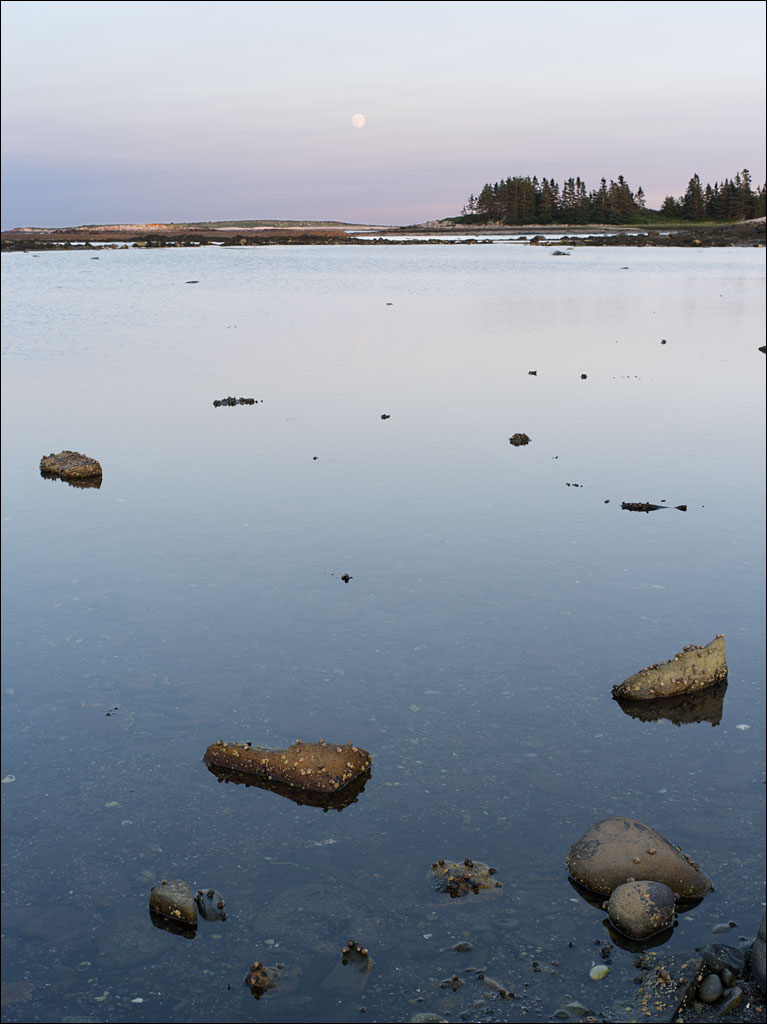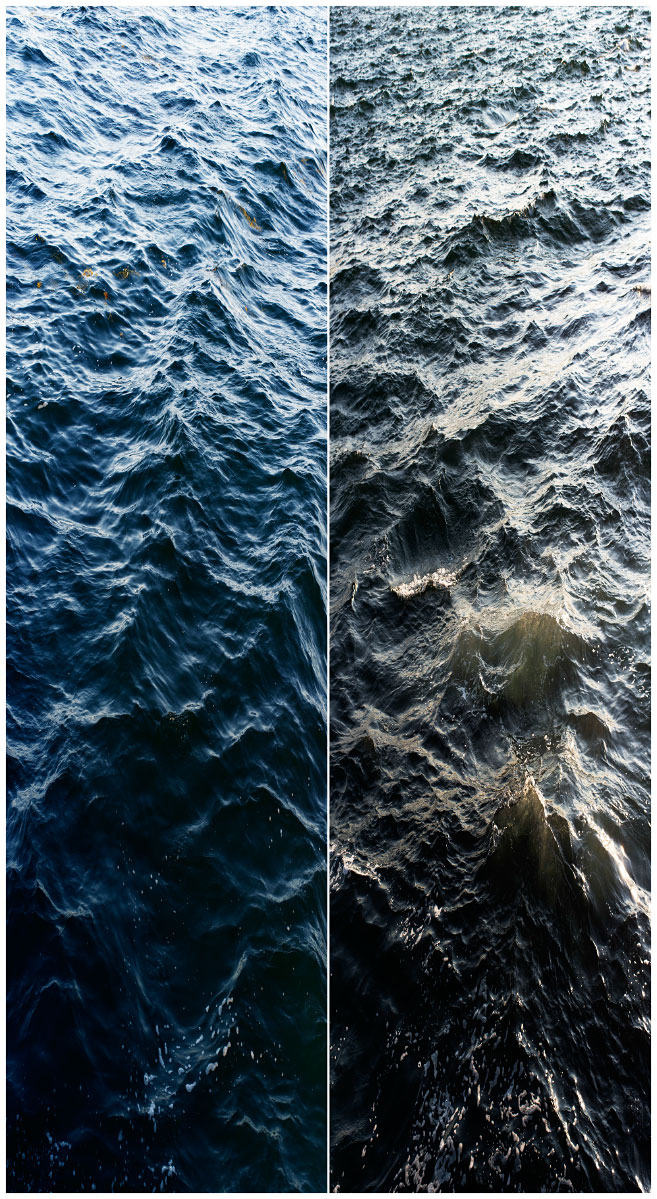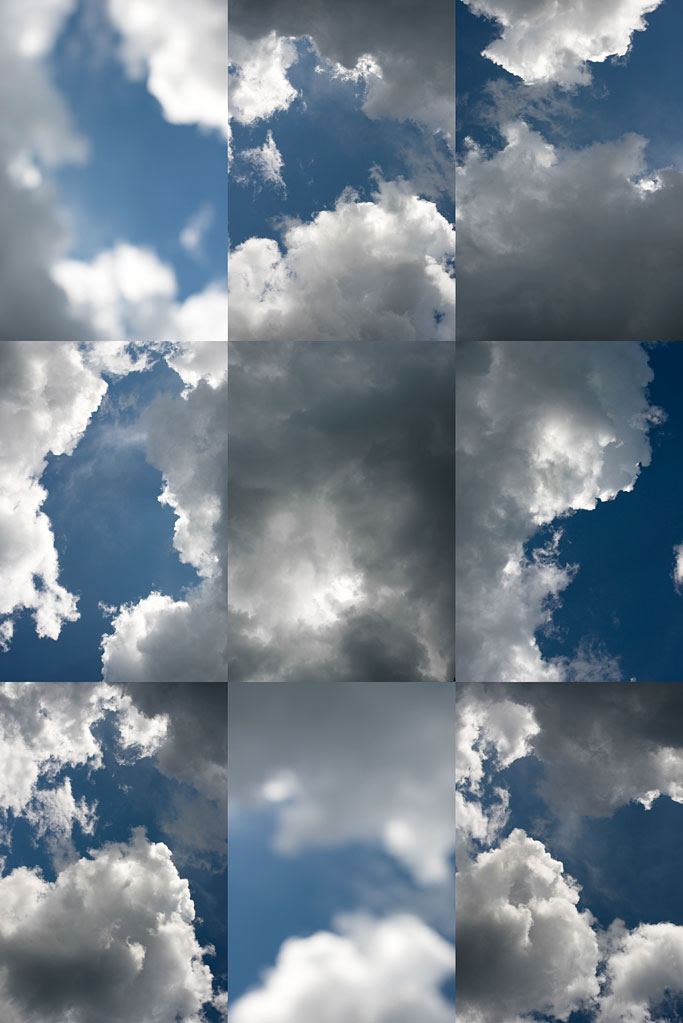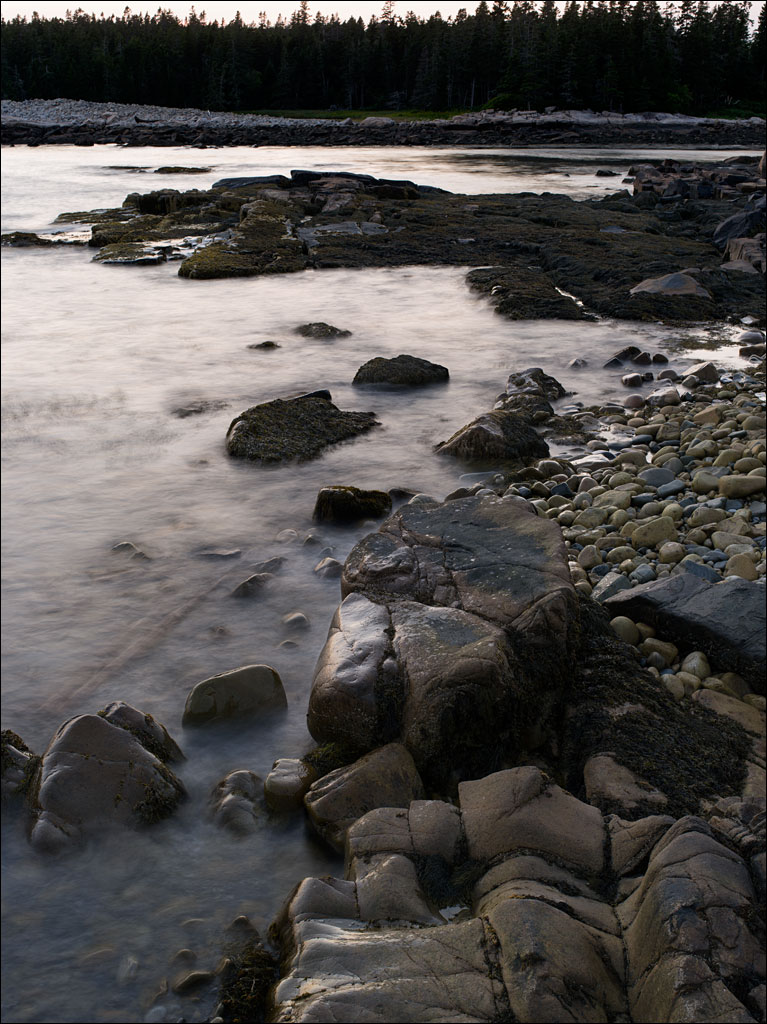 Sun setting behind Schoodic Point in Acadia National Park from Little Moose Island. Click on the image for a larger view.
Sun setting behind Schoodic Point in Acadia National Park from Little Moose Island. Click on the image for a larger view.
Tag Archives: Nature
Basalt Dyke
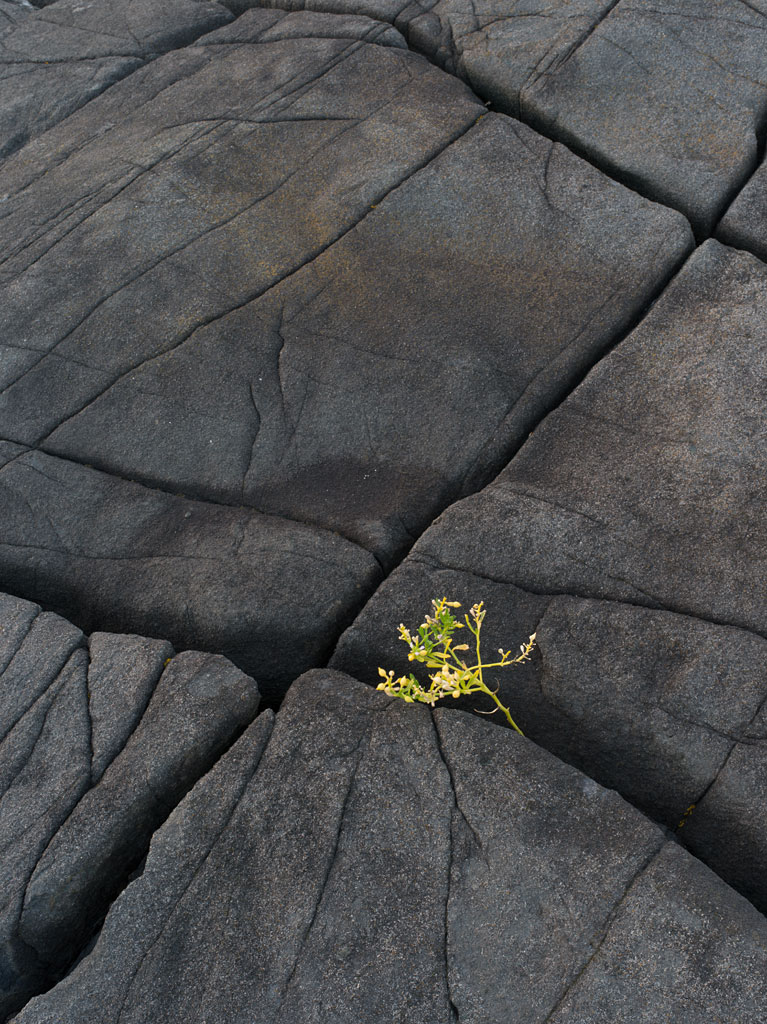 Between the warm granite of Schoodic Point are black seams of basalt. Several hundred million years ago, this basalt (technically diabase) flowed through the fractures in the granite bedrock. The dating of these features shows these represent multiple events over time. Click on the image for a larger view.
Between the warm granite of Schoodic Point are black seams of basalt. Several hundred million years ago, this basalt (technically diabase) flowed through the fractures in the granite bedrock. The dating of these features shows these represent multiple events over time. Click on the image for a larger view.
Dusk at Schoodic Point
Fluid Dynamics
Vegetable Harvest
 Along with tomatoes and blackberries, we are getting other veggies. On the left are Early Summer Yellow Crookneck Squash. Our beans this year are Kentucky Wonder, the large green pole beans, Provider, the mid-sized bush beans, Masai, the small bush beans, and Blue Coco, the purple pole beans. The small tomato in the picture is Gardener’s Delight. And last are our cucumbers. The round variety is Lemon cucumber and the other is de Bourbonne Cornichon pickling cucumber. Unfortunately, because of a lack of water or inadequate fertilizer, the de Bourbonne did not turn the green it is supposed to be. Click on the image for a larger view.
Along with tomatoes and blackberries, we are getting other veggies. On the left are Early Summer Yellow Crookneck Squash. Our beans this year are Kentucky Wonder, the large green pole beans, Provider, the mid-sized bush beans, Masai, the small bush beans, and Blue Coco, the purple pole beans. The small tomato in the picture is Gardener’s Delight. And last are our cucumbers. The round variety is Lemon cucumber and the other is de Bourbonne Cornichon pickling cucumber. Unfortunately, because of a lack of water or inadequate fertilizer, the de Bourbonne did not turn the green it is supposed to be. Click on the image for a larger view.
The Shore of Lake Erie
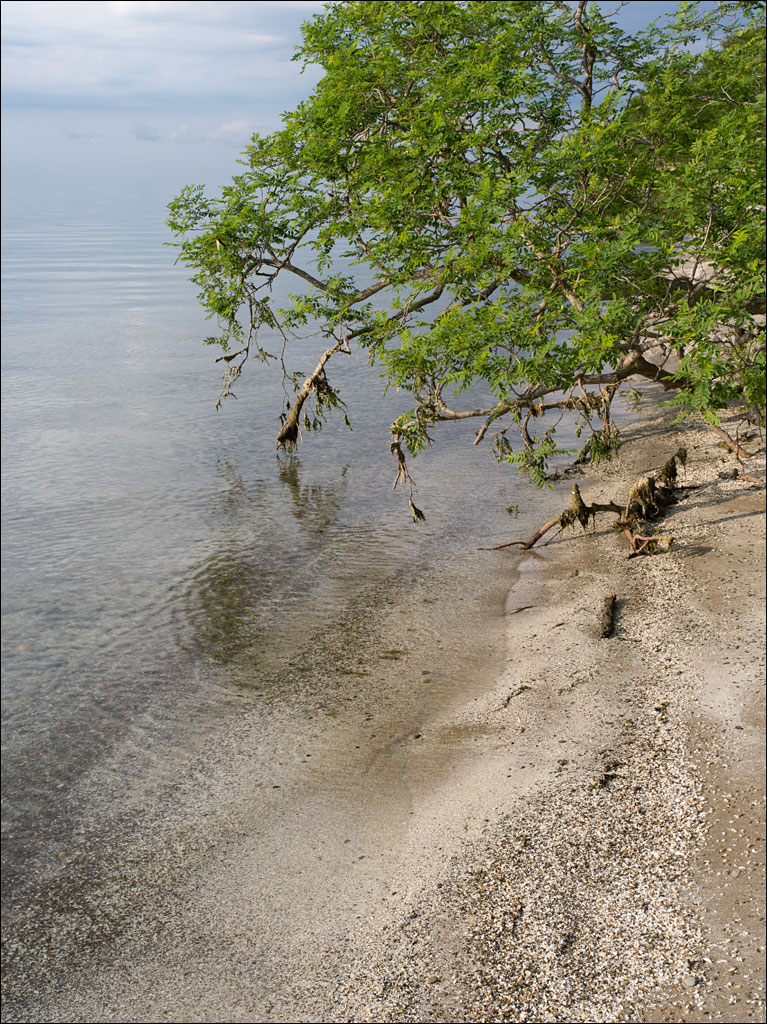 Living in Maine, it is always hard not to think of a body of water that does not terminate at the horizon with land as a lake. But a lake does not look like an ocean. At least, I have never seen such a calm ocean, although these lakes can be violent. The tree in this image was felled by the erosion of the sand banks along the shore. The banks are about twelve to twenty feet tall. The coarse white sand on the beach is actually the remains of clam shells. Click on the image for a larger view.
Living in Maine, it is always hard not to think of a body of water that does not terminate at the horizon with land as a lake. But a lake does not look like an ocean. At least, I have never seen such a calm ocean, although these lakes can be violent. The tree in this image was felled by the erosion of the sand banks along the shore. The banks are about twelve to twenty feet tall. The coarse white sand on the beach is actually the remains of clam shells. Click on the image for a larger view.
Summer Skies
Illusion of Optics
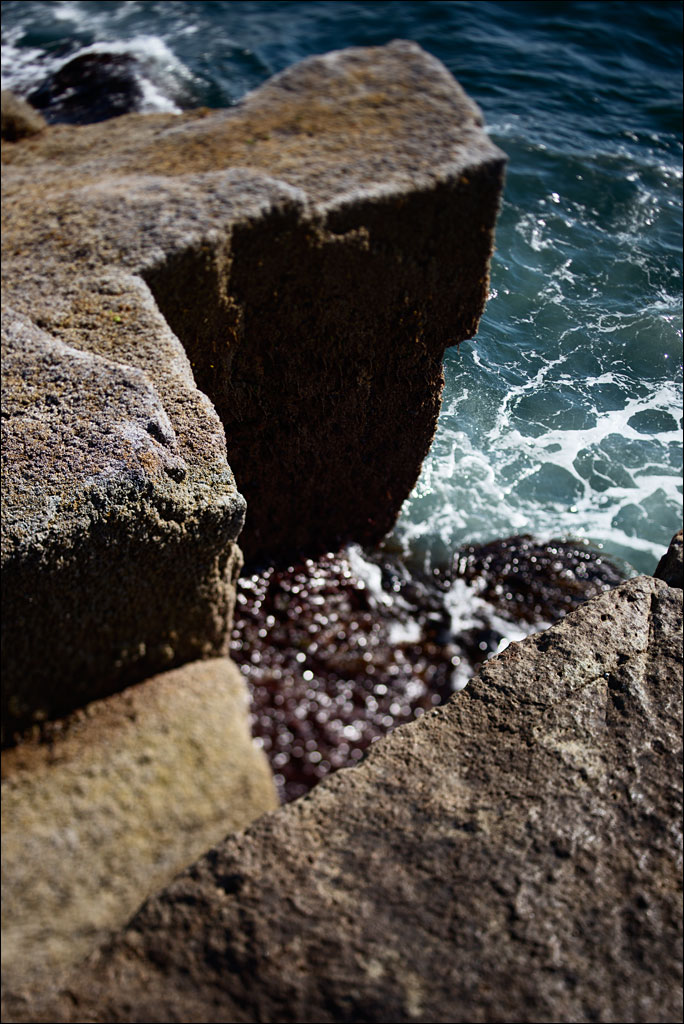 The rocks at Schoodic Point in Acadia National Park. One of the most interesting things about photography is the ability to present the world in a way that a person could not perceive naturally. When a group of objects are in focus, when they appear sharp, it is usually because they are all the same distance from the observer. That does not need to be true for a camera (no Photoshop gimmick here). Click on the image for a larger view.
The rocks at Schoodic Point in Acadia National Park. One of the most interesting things about photography is the ability to present the world in a way that a person could not perceive naturally. When a group of objects are in focus, when they appear sharp, it is usually because they are all the same distance from the observer. That does not need to be true for a camera (no Photoshop gimmick here). Click on the image for a larger view.
Reversing Falls
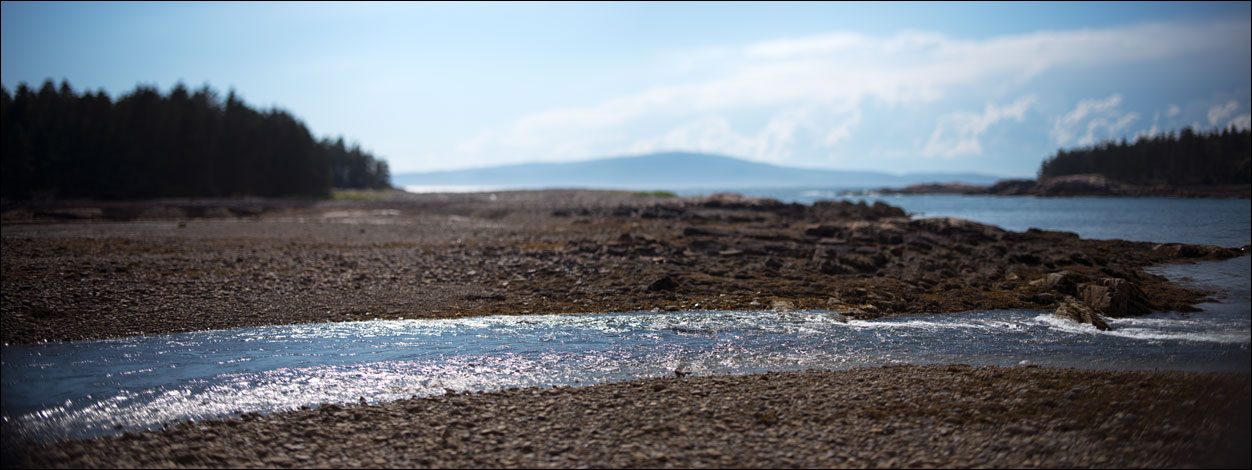 Reversing falls are caused when the water level between one water body and the ocean is different at high and low tide. West Pond on Schoodic Peninsula in Acadia National Park has a reversing falls. This image shows low tide where the land on both sides of the falls, the stream in the foreground, would be submerged at high tide. The trees at the left are on Pond Island, which marks the extent of the high tide. Mt. Desert Island is at the horizon. Click on the image for a larger view.
Reversing falls are caused when the water level between one water body and the ocean is different at high and low tide. West Pond on Schoodic Peninsula in Acadia National Park has a reversing falls. This image shows low tide where the land on both sides of the falls, the stream in the foreground, would be submerged at high tide. The trees at the left are on Pond Island, which marks the extent of the high tide. Mt. Desert Island is at the horizon. Click on the image for a larger view.

